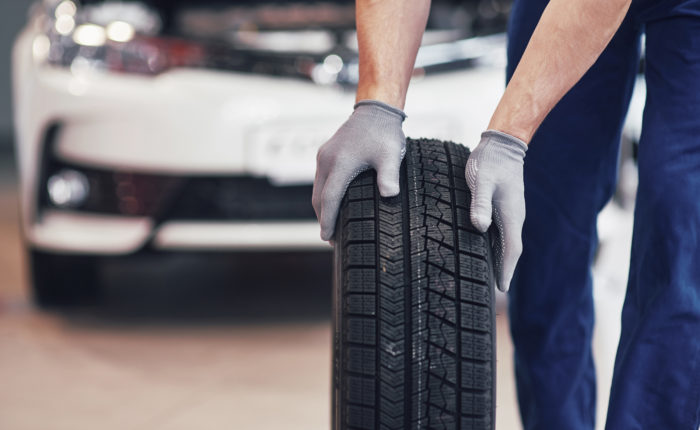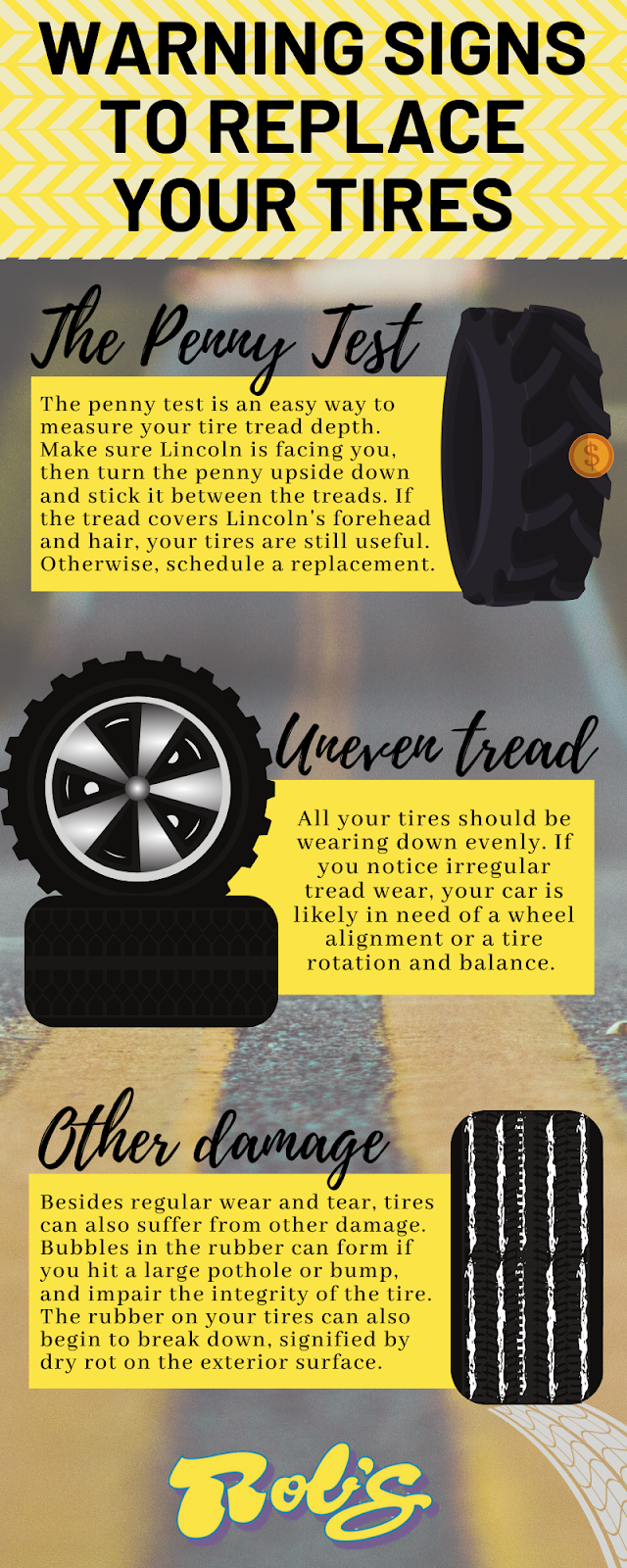Are New Tires in Your Near Future?
January 6, 2020


You rely on your vehicle to transport you from one destination to another in a safe manner. A large part of your vehicle being able to function properly is having the correct tires installed and maintained. Over time, all tires wear down. You may not see it without a close inspection, but you might feel it when you’re behind the wheel. When driving with worn-out tires, not only are you putting yourself at risk, but you’re also putting the people around you in harm’s way.
How Often Should I Replace My Tires?
The short answer is: it depends. The quality of your tires, the extent to which they are maintained, and the number of miles you drive in a given day, are only a few factors that need to be considered when considering tire replacements. The more you drive, the more frequently you’ll be looking at tire replacements because your current set will wear out more quickly. That’s not to say that just because you don’t take long-distance trips every day that you can keep the same set of tires forever.
Most tires have a life expectancy of 25,000 to 50,000 miles, at which point they need to be replaced to keep you and your vehicle safe on the road. Where you fall on that spectrum depends on the brand of tires you’re currently using. However, that mileage is not set in stone. If your tires are always exposed to rough conditions, such as gravel roads or poor driving habits, you’ll probably need to change your tires more frequently.
Even if your miles aren’t racking up because your car doesn’t see the light of day very much, tires can become old and worn. Weather conditions, among other environmental factors, can affect tires regardless of whether they’re being used or not. That’s why the National Highway Traffic Safety Administration (NHTSA) recommends that drivers change their tires every four years.
What is Tread Wear and Why Do I Need to Worry?
The main reason why tires need to be replaced is that the tire tread wears down. Tire tread refers to the grooves and ridges built into the rubber that are designed to grip the road and give your car traction. As you’re driving, the rubber will wear down until the tread disappears.
You never (we repeat, never) want to be driving around with bald tires, or tires that have little to no tread, because your car won’t have proper traction. Bald tires are more likely to cause you to hydroplane and lose control of your vehicle on wet or icy roads. You’ll also find that it takes longer to break when your tires are balding, so you may lose out on the precious few seconds that could prevent an accident. We’ll be giving you this same speech if you end up at one of our collision repair centers near Morrisville, PA.
What Symptoms Should I Be Looking For?


If you’re unsure what condition your tires are in, or you know they’re due for an upgrade soon, don’t risk it — bring your car to Rob’s — especially this time of year. Otherwise, you may find yourself stuck in Morrisville, PA, and in need of our towing company!
To speak with a representative or schedule an appointment, please call (215) 826-9200.
